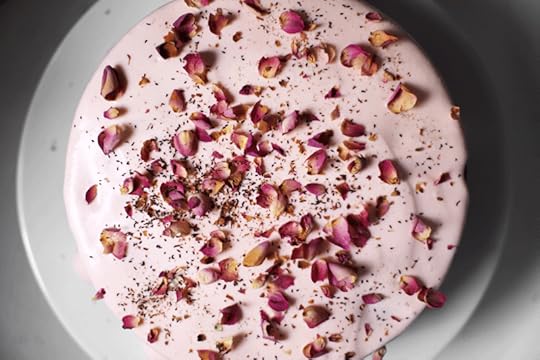How to Find Inspiration in Recipe Development
 A guest post by Kathryn Pauline
A guest post by Kathryn Pauline
“Do you ever worry you’ll run out of ideas?” was one of the most stressful things people asked me about blogging when I first started. Now that I’ve been doing recipe development for years, I have developed over 200 recipes that I love. That anxiety has more or less gone away.
Fortunately, it’s actually pretty easy to set yourself up for creative success with recipe development, and to make sure that your success is meaningful and has a positive effect on the recipe writing community.
Here are 5 tips to help you find inspiration in recipe development:
1. Keep a big list of good and bad recipe ideas on hand.
Most creative people will tell you that the secret to generating a decent number of good ideas is generating a ridiculous number of bad ones. I keep a spreadsheet of all my ideas for future blog posts, and each one gets promoted or demoted as I work on it.
Only the really good ones make it to the blog. But the bad ones are important in their own behind-the-scenes way. About 50% of my initial ideas are absolutely awful, 40% of them are pretty good but need some serious revision, and 10% are actual fully formed good ideas.
2. Find inspiration in what doesn’t work.
It doesn’t matter how many bad ideas you come up with, as long as you don’t thoughtlessly chase after them, without ever identifying the ones worth pursuing.
When I first started recipe developing, I spent too much time (and energy, and ingredients) in the kitchen just experimenting and hoping something would gel. Eventually something would. But success was always hard-won. While I learned so much, it was honestly mostly exhausting and stressful.
Beating yourself up over bad ideas, while sometimes inevitable, is never productive. When something sucks, be proud of yourself for knowing it. Figure out why it sucked, and then move on. Maybe you try again the next day or next year, and maybe you scrap the idea forever.
Now, what to do with the long list of bad ideas? Use it for inspiration! There’s always a reason you thought of it to begin with. Sometimes reading over my list of bad ideas inspires another better idea that I never would have had otherwise.
3. Plan ahead to help your recipe development stay creative.
Whenever bloggers ask me for advice about posting consistently, I feel like my advice comes across as completely unattainable, as if it requires a crazy amount of planning.

My Cardamom Rose Gingerbread Cake. It is loosely adapted from a Cook’s Illustrated recipe. There was no cardamom or rose in that recipe. I also subbed buttermilk for coffee, left out a couple of flavorings, and changed the frosting and decorations.
I suggest they get a few posts ready in advance. Doing so takes the pressure off. Without this buffer, when a recipe goes wrong, I end up vacillating between wishful thinking (“I guess this is good enough to post, because I need something to post.”) and self-loathing (“Everything I do is terrible, and I’ll never have another good idea ever again.”). Mindlessly hating yourself is neither self-reflective nor productive, but of course, neither is thinking everything you do is brilliant.
By regularly working a little bit in the future, I have a little more objectivity when assessing my work. If I’ve planned ahead, when recipe development goes wrong, I can take a step back, acknowledge it, and learn from it. All without beating myself up.
4. Take inspiration from others, and give more credit than you think.
While recognizing your own contribution is important to your growth as a recipe developer, it’s also okay to find inspiration in other people’s recipes. I find a lot of comfort in the idea that we can all inspire each other, and that I’m not just doing this by myself.
So actively take inspiration and actively give credit. David Lebovitz wrote a wonderful article about recipe attribution a few years back. The bottom line? You can legally get away with a lot, but if someone else inspired your recipe, give them the credit. And if you adapted or borrowed someone else’s recipe, attribution is crucial.
5. Use this flow chart to find inspiration and develop recipes.
When you have an idea for a recipe, do a search on it to find out whether someone else already had your idea. If so, you can either scratch it off your list or modify it and give credit to the originator. This flow chart might help you with the process:

So must you develop recipes 100% from scratch, without ever using anyone else’s recipe? Absolutely not! You can still put your own unique take on a recipe, and give credit appropriately.
And do you have to come up with a million brilliant ideas? Definitely not! Just learn from the challenges and keep going.
* * *
Kathryn Pauline is the creator of the Saveur magazine award-winning food blog Cardamom and Tea. She writes about her family’s traditional Assyrian food, as well as her own takes on Middle Eastern flavors, ingredients and cooking techniques.
The post How to Find Inspiration in Recipe Development appeared first on Dianne Jacob, Will Write For Food.



